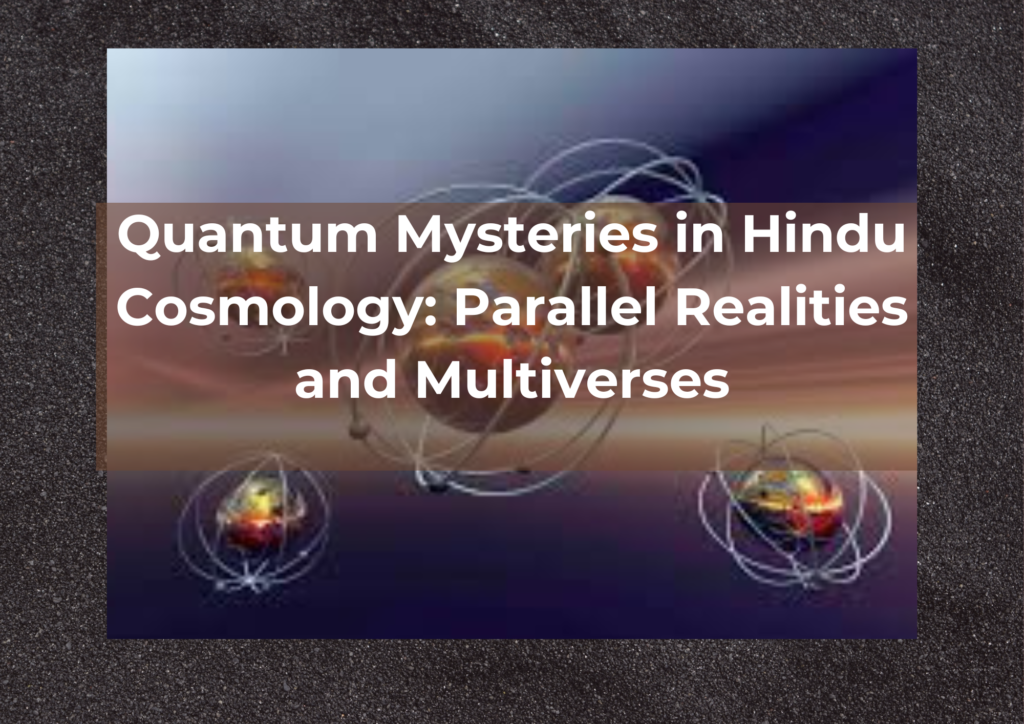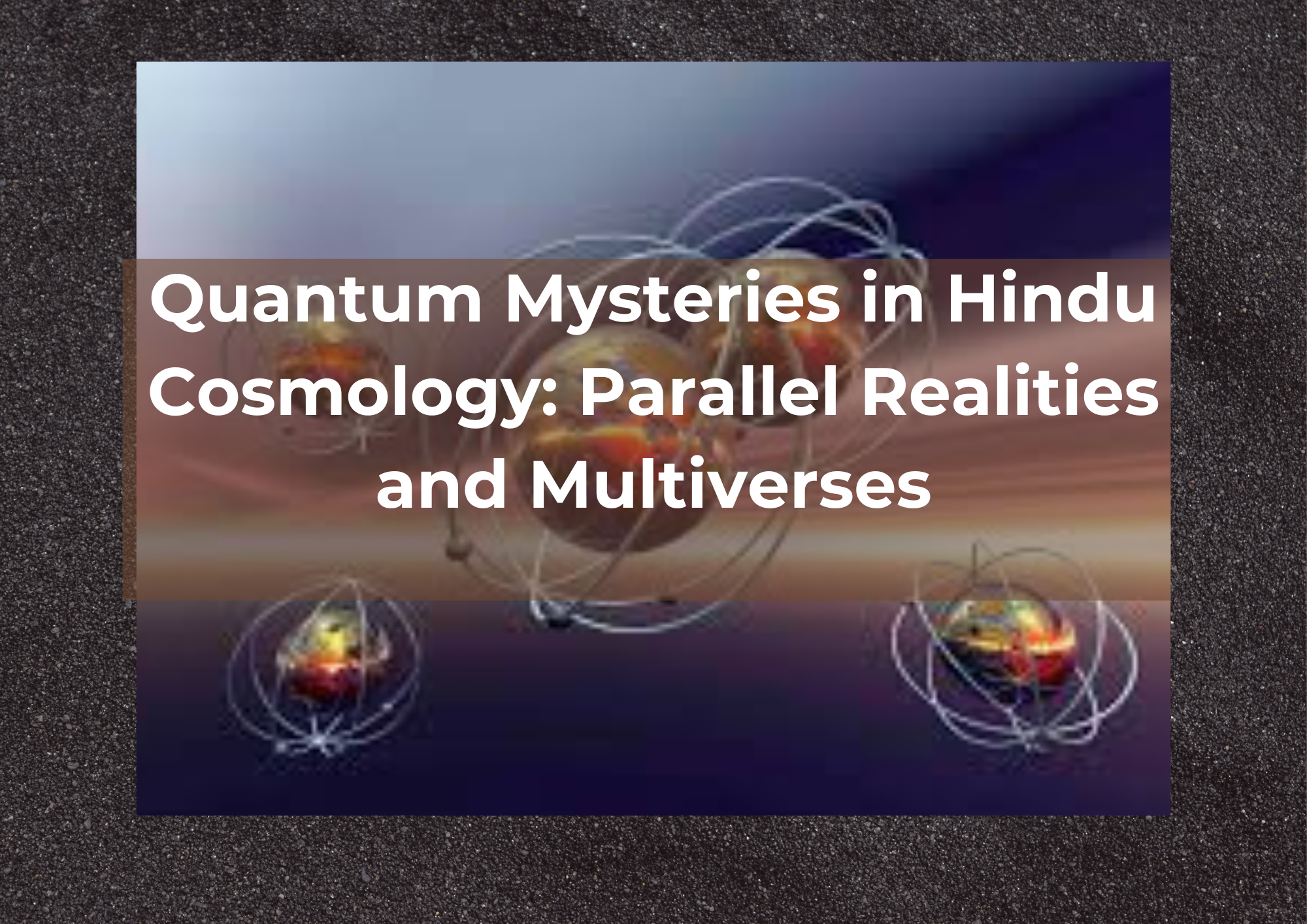
In Hindu cosmology, time is considered eternal and omnipresent, a principle that controls all motion. This concept aligns with quantum physics, which also views time as indestructible and fundamental to the fabric of the universe. Hindu Dharma recognizes Brahman not as a singular ‘God’, but as a principle of interconnected reality, where the microcosmic and macrocosmic realms are reflections of each other.
A central theme in Hindu cosmology is the concept of cyclical time, where universes undergo an unending cycle of creation and destruction. Known as the “Kalpa,” this cycle repeats infinitely, giving rise to an eternal and ever-changing multiverse.
Quantum mechanics introduces many other peculiarities. For instance, particles can be entangled in such a way that they share information instantaneously, even when separated by vast distances. This challenges the common intuition that objects require a physical mediator to interact.
According to Hindu cosmology, the universe consists of fourteen worlds, categorized into seven higher ones (Vyahrtis) and seven lower ones (Pātālas). These realms, including bhu, bhuvas, svar, mahas, janas, tapas, and satya above, and atala, vitala, sutala, rasātala, talātala, mahātala, pātāla, and naraka below, contribute to the intricate web of existence.
The concept of time has long been a topic of debate in Hindu traditions, with seers and sages providing their perspectives on “Kaala.” This dichotomy of time, as viewed in Hindu cosmology and quantum physics, opens up fascinating avenues for exploring the mysteries of the universe.
I’m participating in #BlogchatterA2Z
https://www.theblogchatter.com

No responses yet